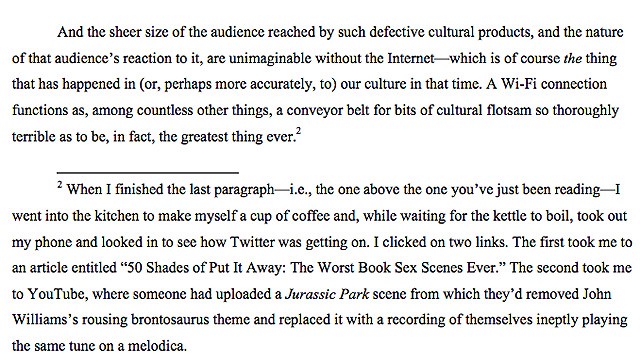In A Bar In West Virginia, Watching Beyoncé Sing
In A Bar In West Virginia, Watching Beyoncé Sing
by Brendan Lowe
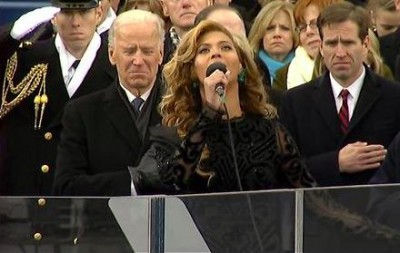
On the TV in the corner of the Village Café, a roadside bar here, President Obama was in the midst of his second inaugural address, but Trish wanted to show off her penis cup. The cup is really a mug with a plastic penis standing erect on the inside. It was a gift to Trish, the daytime bartender, from a patron.
“When I drink from it, my nose touches the tip,” Trish said. “And it’s great.”
I had arrived at the Village Café at the end of a reporting trip. Hungry for a place to watch the inauguration — an event I take seriously and look forward to — with other people, I searched on Yelp, watched the local news, and did some Googling. I called the main branch of the Kanawha County library in Charleston, the state capital, to see if they’d be showing it, but the first person I spoke with seemed taken aback by my question, and when she transferred me to the reference desk, no one picked up.
When I called the Village Café, Trish happened to pick up — it was seven minutes short of 11 in the morning, but by virtue of Trish coming in early to scrub the bathrooms, the bar was open. When I heard Village Café, I imagined a coffee shop more than a bar, but that was beside the point — Trish was happy to show the inauguration.
I drove up to the bar, or where Google Maps indicated the bar should be, and found a one-room, single-floor rancher, about 75 feet long and about 20 feet deep. There were no cars in front or on either side of the building. Of the two main windows, one was boarded up and the other had the blinds drawn. Eight tall, narrow windows made me think of a prison. But the ‘Open’ sign was lit, and so I entered.
After the front door, I immediately reached a second door. You need to buzz to enter this bar. Unsure why or what that could portend for what was on the other side of the door, I pushed the button and Shirley let me in.
Shirley is Trish’s best friend, been her best friend for two years. Shirley lives a stone throw from the bar in one direction, and Trish lives a stone throw in another direction. They spend a lot of time together, at the bar or otherwise. Trish’s laundry machine is broken, so yesterday Trish called Shirley and asked her if she could come over to use hers. Trish had a bottle of Malibu rum, and Shirley had some fresh fruit, so they got drunk, played cards, and did some laundry.
When I entered the bar, Shirley was smoking. We were the only three people in the bar.
Unable to summon the courage to order a cocktail before noon — though I was curious what Skittles, advertised as a “Special Drink” for $5, was all about — I ordered coffee, and Trish and Shirley decided to join me. That’s how we got to the penis cup.
Shirley wanted to know where I was from and what I was doing there — two entirely fair questions. I explained I was in the area to write a story on a gun show, which came as a relief to both women. Sissonville is where some of the characters are from in “Buckwild,” the rural “Jersey Shore”-style show that premiered earlier this month on MTV. Reporters have been poking around to get locals’ take on the show — few are amused, and most are tired of talking about it.
Trish and Shirley aren’t tired of talking about “Buckwild” or anything else. They’re fine with the show — too much drama from the girls, but generally they’re okay with it. They’re just happy the show isn’t about drugs.
Drugs?
Meth, Shirley says. “Sissonville Slim Fast.”
Trish says Sissonville has been on CNN for having more meth labs per capita than any place in the country. Like other things the women say — such as how Trish doesn’t want her daughter to look up to Hillary Clinton because she “slept her way to the top” — I don’t know that this is true.
That’s how conversations go at the Village Café. Shirley compares the bar to the diner in “Green Acres” where patrons came to dish gossip. Later, when Steve, who owns the bar, comes by, Shirley and he will go back and forth about who learned first that a local boy had been killed in a drunk driving accident — Shirley, who happened to be at her cabin in Webster Springs, West Virginia, at the time, or Steve, who happened to be in Myrtle Beach.
“When I hear a rumor,” Shirley said, “I say ‘Yes, that’s true,’ add something to it, and pass it along.”
Amidst the banter, President Obama has launched into his inaugural address. I hear his voice briefly and intermittently, like a drowning child who yelps whenever his head comes above the surface.
“By, and for the people,” he says, before the din retakes the room.
At this point, we have company. Five young adults have been buzzed into the bar.
“How ya heathens been doin’?” greets Trish.
“Stayin’ out of trouble.”
“Don’t be lyin’ to me.”
“It sounded good, though, didn’t it?”
Though both Trish and Shirley are staples here, neither, it turns out, is a local. Trish is from Evansville, Indiana; Shirley a Buckeye from Meigs County, Ohio. Trish says she moved here to marry a beer man and “raise hillbillies”; Shirley’s family has roots north of here; both women came here with the men they married, and since separated.
Trish has three kids — two in college, one in high school. She says the two older ones are in Mensa, “and if I got the third one tested he would be, too.” Trish jokes a bit less when she’s talking about her children — her affection for them is deep. “I raised them right,” she said. “I raised them so they’d know how to handle themselves as well in the governor’s mansion as in the local bar.” And despite her own needs, Trish has her priorities. “I have no insurance and three kids — they’ll get their teeth fixed first.”
Trish says she is 50. This admission draws an age-related joke from Shirley, who is 40 (and is therefore called “slut” while Trish is “momma slut”). No joke comes without a retort, this time from Trish: “I’m just happy I lived this long.”
Obama carries on: “…tempered by the flames of battle…”
Trish is single and, by all accounts, lonely. “She has two cocktails a day,” says Shirley, “because that’s the only bit she gets.”
Trish shakes her head.
“I leave the door unlocked and the lights on, and I still can’t get anyone to come in and rape me,” Trish said. “It’s terrible.”
Shirley, in a Harley Davidson hoodie to Trish’s Jeff Gordon crewneck, has a boyfriend. He’s 28 and has a 9-year-old daughter. Shirley’s favorite part of the week is Drunk Wednesday — that’s when her boyfriend’s daughter goes to stay with her mom, and, well, Shirley gets drunk.
“Except during Hurricane Sandy,” Shirley notes. West Virginia received a lot of snowfall, and the drunk day was moved to Thursday.
Obama: “…naïve about the dangers we face…”
When Shirley notes that Meigs County, where she’s from, is the “pot capital of the world,” I note how she’s lived in two different (purported) drug capitals. When I ask as a joke whether this is a coincidence, Shirley makes a broader point.
“It’s about poor people,” Shirley said. “Poor people are around drugs.”
I ask Shirley about Keith Judd, a federal inmate who, despite currently being imprisoned in Texas, was able to get on the ballot for the 2012 Democratic presidential primary by virtue of West Virginia’s (astonishingly) liberal ballot laws. Perhaps even more astonishingly, Judd got 40 percent of the vote and won 10 of West Virginia’s 55 counties outright.
Afterward, armchair journalists sought to explain this phenomenon. Judd, it just so happens, is white. In the photo released of the federal authorities, Judd’s hair is bushy in the front and long in the back, winding past his shoulder. If he had scalped a raccoon and stuck the fur on his head, he would look no different.
Obama: “Every single American…”
Yet the main takeaway of these journalists’ reports was that Judd’s strong standing was representative of a protest vote by West Virginians — where, it’s worth noting, registered Democrats outnumber Republicans by a 2-to-1 measure — about the Obama administration’s policies on coal. While this response is not without merit — the state did in fact sue the Environmental Protection Administration about these policies — it did not seem sufficient to explain how an unknown man, whose name happened to be much whiter-sounding than Barack Hussein Obama, had received four in 10 votes, especially in a state where the late, legendary Democratic senator, Robert Byrd, was a former member of the Ku Klux Klan. I figured Shirley would have something to say about the matter.
“For three-quarters of people in West Virginia, it’d be about his race,” she said. “That’s why they just don’t like Obama.”
By this point, I was feeling hungry — I’d been drinking coffee I didn’t even want for the last hour, and that was on top of the coffee I’d has three hours earlier. I looked for food options. There were four: “Ham hot pockets, pizza bread, six hot wings, Philly cheese steak.” I went with the pizza bread. Trish admitted it was frozen. I stuck with the pizza bread.
Obama: “…knowing that today’s victories…”
By the door, the young people who had entered earlier were smoking cigarettes and playing video casino games on five Game King and West Virginia Multi Game machines. My conversation with Trish and Shirley turned to education. Trish’s daughter had been an education major, but she’d recently switched to forensic science. I told Trish I was a former teacher. She smiled and started talking about the negative correlation between public servants’ contributions to our society and the public’s appreciation of them.
“The people who are raising this country, making it what it is,” she said, “are the people making the least.”
Obama: “…the United States of America.”
After his speech, our conversation ranged. We discussed the best way to make scalloped potatoes (leave the peel on — “that’s where all the nutrients are,” said Trish — and use commodity cheese — “the cheese they give to poor people,” said Shirley), creamed potatoes (white sugar is the secret) and green beans (“they only way they’re good is with baking grease,” according to Shirley).
Beyoncé, who we all agreed was beautiful, was singing the national anthem. We were silent until she finished. Then Trish spoke.
“They can bitch and moan all they want,” she said, referring to no one in particular, “but this is still the greatest country in the world.”
Related: Notes From Inside Obama’s Election Night Party
Brendan Lowe is a freelance journalist. He has previously written for Time magazine, GOOD magazine, and the Baltimore Sun.
New York City, January 21, 2013
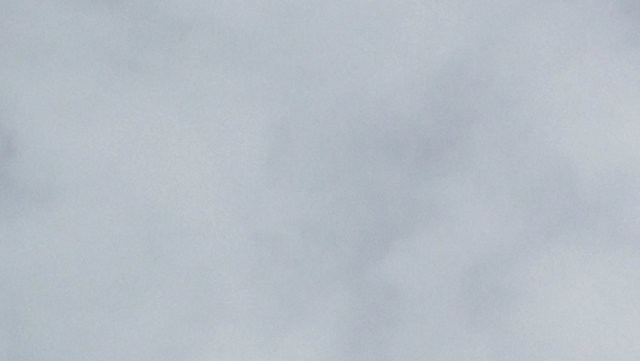
[No stars] Conventionally grim. The morning was the midday was the afternoon, flat gray and cold. The lone point of interest was the possibility and prediction that all the heavy gray overhead was loading up for a flourish of show. The scarf was unwrapped from the neck of a coat hanger; the new glove liners that had been kicking around the vestibule came out of their wrapper and went into the coat pockets — not onto the hands. It was important to pace the preparations, to keep some things in reserve for when the real stuff hit. So the gloves and the liners, and even the hat, were tucked away, ready. And ready they stayed. Night fell: still no snow. Dinner was cleared away: no snow. Bedtime: not even a flake anywhere down in the streetlights. An unequivocal failure.
Try Not To Catch Face Cancer From An Endangered Tasmanian Devil!

“Biologists first encountered the cancer in the late 1990s. The tumors grew on the devils’ faces or inside their mouths, and within six months the animals were dead. The first cases appeared in eastern Tasmania, and with each passing year the cancer’s range expanded westward. When scientists examined the cells in the tumors, they got a baffling surprise. The DNA from each tumor did not match the Tasmanian devil on which it grew. Instead, it matched the tumors on other devils. That meant that the cancer was contagious, spreading from one animal to another.”
— Nature, in all its weird and terrifying glory, is killing off the already endangered Tasmanian Devils with contagious face cancer. The disease hasn’t yet jumped to humans, yet.
Photo by variationblogr.
What Sinister Forces Murdered All These U.S. Presidents?
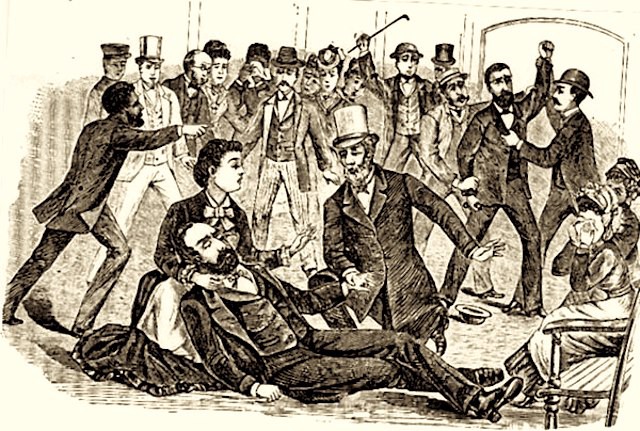
What happens when a candidate wins the presidential race and gets that first top-level security briefing in the Oval Office? The comedian Bill Hicks had a pretty good idea, which he explained not long after Bill Clinton was inaugurated.
“No matter what you promise on the campaign trail,” Hicks said in a 1993 routine, “when you win, you go into this smoke-filled room with the 12 industrialist capitalist scum-fucks who got you in there. And you’re in this smoky room, and this little film screen comes down, and a big guy with a cigar goes, ‘Roll the film.’ And it’s a shot of the Kennedy assassination from an angle you’ve never seen before… And then the screen goes up and the lights come up, and they say to the new president, ‘Any questions?’”
It’s hard to find a liberal American who didn’t suspect something along these lines after Obama took office four years ago. At least Republican presidents try to do obnoxious right-wing things like drilling for oil in the skulls of baby polar bears and canceling Social Security. Democrats like Obama and Clinton seem to be embarrassed by their own supporters. It’s the reason why Democrats were so surprised and joyful after Monday’s second-term inaugural speech — Obama said liberal things, almost like he believed them!
Even without conspiracies and the deepest secrets of the nation, it’s not easy to govern from the executive branch. With a deliberately obstructionist House of Representatives, it’s almost impossible. Illegal wars and constant drone attacks seem to be the only things the Obama Administration can do with impunity, and those are things Congress would generally approve of anyway, given the chance. Still, a conspiracy is comforting because it explains away some of the disappointment of real life. Obama would stop wars and shut down fracking and make marijuana legal and ensure abortion clinics operated in every state under federal protection, if only those bastards didn’t have him by the balls. Play by their rules, or your semen on an intern’s blue dress makes the front page of every newspaper, or your brains get sprayed all over your wife’s fancy pink dress.
The record isn’t very good: Eight presidents have died in office, four by an assassin’s gun, four others by illness and even suspected poisoning. Not including those who were successfully killed by assassins, another 13 presidents were the target of failed attempts — of those, Ronald Reagan was repeatedly shot in the chest but survived. One president resigned before he could be impeached. Another two were impeached but remained in office.
Political conspiracies can seem like modern inventions, because of the Internet and talk radio, but there are conspiracies attached to every attempt on an American president’s life, dating all the way back to the first president to die in office, in 1841. Here are four strange tales behind the suspicious deaths of four American presidents nobody really talks about anymore, because they’ve been dead for so long and aren’t especially well remembered today. These are not the Abraham Lincolns and Franklin Roosevelts, because these are History’s Losers:
William Henry Harrison: He served only 31 days in office before dying of pneumonia in 1841. That’s what they
want you to believe, anyway. Other sources say no less a global superpower than the Illuminati poisoned Harrison, through some remarkably complex arrangement with a Mardi Gras social group called the Mystic Krewe of Comus, which was apparently started as a front group for the Confederacy and Yale’s Skull and Bones fraternity. Harrison was killed by these clever racists because he allegedly planned to block the admission of California and Texas to the union as slave-holding states.
Zachary Taylor: Harrison wasn’t the only one killed off by the pro-slavery Illuminati conspiracy. Zachary Taylor’s alleged poisoning was taken seriously enough that his remains were exhumed in 1991, from the National Cemetery in Louisville, and tested for arsenic poisoning. The results were inconclusive, but the suspected reason for his assassination was the same as Harrison’s: “because of his opposition to the extension of slavery to Western states.”
James Garfield was shot by Charles Guiteau in front of many witnesses. Guiteau shouted as he was wrestled to the ground, “I am a Stalwart of the Stalwarts and Arthur will be President!” Chester A. Arthur, a compromise choice for vice president on the Garfield ticket, was indeed a member of the Stalwarts — an old-fashioned group of bankers and insiders who wished to keep power in Washington. After Garfield died of his wounds just three months after taking the oath of office, Arthur did indeed become president. And the bankers continue to run America.
William McKinley was also shot by an assassin in the summer of his second term, on September 6, 1901. An anarchist, Leon Czolgosz, got to McKinley during the president’s trip to the World’s Fair in Buffalo. Anarchists were commonly blamed for such acts at the turn of the century, because they sometimes committed such crimes. But what was the real reason for the shooting of McKinley within the “Temple of Music” at the Pan-American Exposition in New York State? McKinley’s first vice president had died in office, and was replaced for the second term by an ambitious young politician named Theodore Roosevelt, who became a Mason a few months before the shooting in Buffalo, and who would become a very powerful Republican president after McKinley was out of the way. There were also curses and paranormal something-or-others involved, and a mysterious Italian who distracted McKinley’s security men at the world’s fair!
Warren G. Harding died in San Francisco after becoming ill during a tour of the West’s best places to drill for oil. He was incredibly corrupt and was best known for the Teapot Dome scandal, which was like 9/11 and Soylndra combined. His wife might’ve poisoned him, because he constantly had affairs and also took part in crazy pagan orgies. He was also maybe an octoroon, which means he may have been the real first African-American president. After his death, his wife spent a month in the White House destroying all of his personal papers and correspondence.
Cheese Melty
“A truckload of burning cheese has closed a road tunnel in Arctic Norway for the last six days.”
How Much Of Life Can You Still Blame On High School?

“Today, we also live in an age when our reputation is at the mercy of people we barely know, just as it was back in high school, for the simple reason that we lead much more public, interconnected lives. The prospect of sudden humiliation once again trails us, now in the form of unflattering photographs of ourselves or unwanted gossip, virally reproduced. The whole world has become a box of interacting strangers. Maybe, perversely, we should be grateful that high school prepares us for this life. The isolation, the shame, the aggression from those years — all of it readies us to cope. But one also has to wonder whether high school is to blame; whether the worst of adult America looks like high school because it’s populated by people who went to high school in America. We’re recapitulating the ugly folkways of this institution, and reacting with the same reflexes, because that’s where we were trapped, and shaped, and misshaped, during some of our most vulnerable years.”
— Does the cruel crucible of high school make you better prepared for the difficulties you will confront later in life, or does it warp you forever, cursing you to live out the rest of your days in some strange, sad version of the person you were during the most difficult part of your adolescence? I’m not quite sure — I personally think we are a bunch of hairless monkeys who are more or less a prisoner to genetic and biological urges that we either manage to keep under control or surrender to and, in our search for significance, drape in some kind of moral code the better to justify why we did or didn’t do something we don’t quite understand in the first place, and then we die and none of it matters — but Jennifer Senior has some thoughts.
Photo by Anatoliy Samara, via Shutterstock
"Disagree And Still Be Friends": A Conversation With Andrew Sullivan
“Disagree And Still Be Friends”: A Conversation With Andrew Sullivan
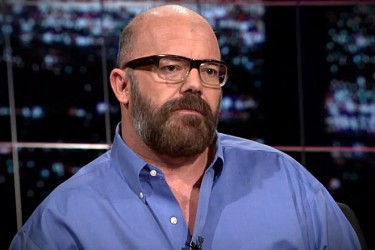
My leftist friends are mainly baffled by how much I like Andrew Sullivan. His blog, the Daily Dish, presents a libertarian-inflected center-right political stance. He supported the Iraq War; he is gay and a practicing Catholic. As Ken Layne recently remarked here, Andrew is “by any rational assessment, a demographic of one — a conservative liberal gay Republican Obama loyalist and Irish-English Oxford man who sought and secured permanent U.S. residency.”
But the Dish is intelligent, rational, mannerly, and welcoming, in stark contrast to the common run of right-wing blogs. Here is a conservative who accepts me and my views freely, however much they may diverge from his. It was evident from the first that among the apparently limitless multitude of conservatives who will not, cannot, have a civil conversation with me about politics (among whom I can count a discouraging number of my own relatives) here is one who is willing to talk and listen in a condition of mutual respect and candor. This quality is rare enough on the so-called liberal side; on the conservative side, it’s unaccountably rare. Just as importantly, Andrew Sullivan recanted his support for the Iraq war, which cannot be said of most of his colleagues on the right. I hope I have the same courage and brains when it’s my turn to change my mind.
Andrew is in the news because he and his partners in the Dish have struck out on their own, on the expiration of his contract with The Daily Beast at the end of 2012. The new Dish will be ad-free and independent, funded through reader subscriptions. This experiment is being closely watched, because he is one of the few bloggers (as of yet) with an audience large and loyal enough to try it.
When we spoke over the phone last week, the author was battling the flu.
Andrew Sullivan: Bloody flu. And I have chronic asthma and bronchitis anyway, so it always brings me down.
Maria Bustillos:: I know! [and I do, too. Any follower of the Dish has been on a real rollercoaster with respect to the author’s health issues; he’s HIV positive and discusses the status of his health there all the time.]
Maria: So you’ve set off on this great adventure. How does it feel?
Andrew: It’s hard for me to distinguish it right now from the flu, to be honest, because I feel pretty rum, but of course it feels liberating, and exciting, and incredibly, just the response from our readers — the emails, on top of the donations, it’s just been… I don’t know, I’m not used to this sort of wave of love, I’m usually sort of more attuned to the opposite. People seemed to take to this idea very well.
We won’t really know until we have installed the meter and see how many of these fence-sitters are nudged to help pay, but the number right now, I can tell you, because we decided to make this all as transparent as possible, let me just refresh it: it’s $466,899. So we had a huge big bump on the first day, and then it’s inevitably trailed off a little, but we’re not doing our big pitch yet…
(I’m just checking on my beagle, here, I heard some noise… I thought she was up to no good, but she’s all right. When you have beagles, you always have to be on the lookout for their latest mischief.)
So it’s been a really exhilarating ride, and also kind of exhausting. We’re sort of driving the car as we build it; it’s not like we can take a month off and put all these pieces together, we have to keep going, and that’s why it was nice of the Beast to give us some time to get our act together.
Maria: How different will the new site be? Are there things you couldn’t do at a big shop, that you’ll be able to do now that you won’t have anybody breathing down your neck?
I don’t fit into any demographic, I never really have. But that’s true of lots of us, especially people my age and younger who’ve grown up with complicated identities, because life has gotten more complicated, and in which we don’t want to be defined by any single one of them.
Andrew: Happily, people weren’t breathing down our neck before; we’ve had really great relationships at both the Atlantic and the Beast, and my contract at both places gave me complete editorial control, so there was no pressure on me at all, editorially speaking. And we’ve made a strong decision that when we start we’re going to keep it very similar to what it is now; in other words, it will remain, as it was always, a simple, reverse-chronological blog. The one thing we might be able to do is to have no pages, so that the thing will scroll infinitely down, which is fun.
The big advantage is that if we have a project we want done, before, we would have to have people in these other institutions to approve it or to give us the resources for it, or to beg their tech staffs to take some time to help us, whereas now I think, Inshallah, we will be able to have money to get a designer and do it our way, or [in the case of] commissioning art: just the ability to execute stuff quickly, simply, nimbly, without having to deal with any bureaucracy. Three of us, Chris [Bodenner], Patrick [Appel] and I, are partners in the company, and we do have a pretty solid thrashing-out process of figuring stuff out as we go along, but once we make a decision we do it as quickly and decisively as we can.
Our goal right now is to continue the Dish as it is, and keep improving its quality. But if we do better than we hope, we do have a kind of quixotic idea of starting to commission and edit longform journalism as a sort of added part of it; I have this concept of Deep Dish, where we want to get big writers, and pay them real money, or do the Byliner approach and sort of split the revenue with the writer. I do feel there’s a real need for really good, long pieces, and the magazines out there that run them are really dying so fast, and we need that, and I figured if we can make the bloggy thing connected to a more longform thing, I thought that would be a lovely point of contact. There’s no reason, I don’t think, that the two can’t be united.
Maria: You are occupying this unique position, not just in media but on the political spectrum. I’m very deeply interested in how people of conscience who don’t necessarily agree on specific issues can unite to save our discourse. Which has gotten so stupid. So I would like to know, what do you think about the Dish as a sort of unifying force to get people of different political persuasions to be able to understand each other. Is that something you approach explicitly?
Andrew: That’s a central part of our mission, I think.
My positions… I wouldn’t say I’ve changed a huge amount actually, philosophically — people think I have? But the world has changed around me, in that the Republican party went so completely bonkers, and because I genuinely admire the President and what he’s trying to do, but I’ve also always been for civil rights, and basically a libertarian, and I believe in a sober, sane foreign policy. So you know, I don’t think I’ve changed that much, but we make sure there’s cogent and potent arguments posted that counter mine. We have dissent. We have ongoing reader threads which take issue with me; we never let one of my more outrageous points go unchallenged. What I love about the process is, not only does it educate me, it also creates a safe space, I think, for dialogue between people who don’t agree about things.
One of the things I’m proudest of about the blog is that when we did a survey of our readers, fifty percent were believers and fifty percent were atheists, and yet they’re all reading the same site. Which I found thrilling, because that dialogue is absolutely one we need to have. The idea is to try to create a community dialogue for intelligent, well-meaning people in good faith. That’s really what I want to do.
Twenty years ago — God. I don’t even want to think how long ago it was, back in the late 80s, when I helped kick-start the whole marriage equality thing, over the next few decades I realized that the most successful thing we could do to achieve this was dialogue. If we could just have a debate on civil terms with our opponents on this, I was convinced that the argument was so strong for us that we would in the end win. Call me an old-fashioned liberal believer in the exchange of ideas — thought.
And we did, I think, actually manage over twenty years to shift public opinion by force of argument. I did an anthology on same-sex marriage which included Maggie Gallagher, and Leviticus, and all the smartest opponents of same-sex marriage, because I was completely convinced that a fair-minded reader who read all the arguments for and against would come out in my position. Maybe that was arrogant of me. But nonetheless I’m not afraid of airing these disputes.
There are lots of things in American journalism and American life that people won’t talk about — they’re “not gonna go there.” And sometimes if it’s truly pointless to go there I can agree, but it was important to me that the Dish took a really strong and really early stand on torture, or the issue of gay rights, of airing a much wider debate about the Middle East, about Israel, about Iran, those issues which are touchy and can often result in talk-radio blather. Even things like late-term abortion, which we covered primarily through women readers writing us about their own experience of having it; another thing I’d never read before anywhere. Probably a third of our content is from readers, and I’m telling you, they are as intelligent as any op-ed columnist. As an editor, I can tell you, these readers send in cleaner copy than half the professional journalists I used to have to edit. And they do it for no credit; they don’t even have their names attached. That tells you, these people are just interested in debating; they want to get their point of view across.
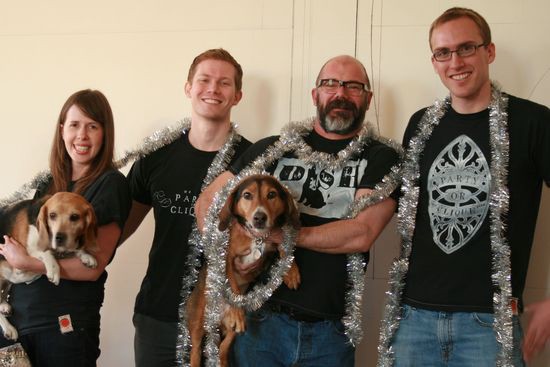
Maria: Please comment on this related idea: that you can disagree and still be friends.
Andrew: Yes. When people bump into me on the street — people who’ve seen me on “Bill Maher” or something will come up to me and go, “oh hello, Mr. Sullivan.” The people who read the blog say, “Hi, Andrew,” which is a lovely thing for me, but they always end the exchange by saying, “I love the blog, don’t always agree with it”: they always say that! Well, neither do I! The whole point is not to reach some sort of premature conclusion, but to sustain a nutritious conversation, that’s the idea. It’s a conversation.
So we have these reader threads, that we call them, they can go on for quite a while. And you find in them people with their own firsthand experiences, for which there is no real substitute in finding out the truth about the world. And we think that if we just raise a question with our readership, and ask them to help, there is almost nothing they can’t tell you; they’re an amazing resource.
Maria: On the average political blog, there are so many comments threads where people are just trying to out-snark each other, and it’s really poisonous; people start to fear that when they open these questions in their real lives, they are going to meet with that kind of a welcome.
Andrew: We refuse to have a comments section, because frankly the anonymity of the emails basically removes ego from the debate, so it becomes more about the argument than the egos of the people making the argument.
Maria: This is another thing I want to talk with you about; you’ve managed to avoid falling into the trap of having to “protect your brand,” I believe because you don’t fall into any of the standard categories of thinkers or writers on any given subject.
Andrew: Sam Harris once called me “a parish of one.” I don’t fit into any demographic, I never really have. But that’s true of lots of us, especially people my age and younger who’ve grown up with complicated identities, because life has gotten more complicated, and in which we don’t want to be defined by any single one of them, but are happy to present many facets of our interests and personalities. So you’ll get me going on about facial hair as well as circumcision, or the Iraq War, or Piers Morgan. It’s just whatever’s interesting to me at the moment.
I must emphasize that Chris, Patrick, Matt [Sitman] and Zoe [Pollock] — my colleagues — their job as I’ve asked them to do it is not to echo me, at all. It is to follow their own impulses and to find out what they find interesting, and to keep as broad a dynamic as possible so that different topics can be explored in different ways. Sometimes it’s a bust, sometimes it isn’t.
And then there’s also the bloody joy of the Internet. Our Mental Health breaks, which are — there’s been a huge resurgence in the beauty of the animated and non-animated short, why not have a daily one of those? There’s so many news photos that never get put in the paper at all, there’s only one photographer for one story, when there’s so much more to offer; we pay for it, and we try hard to feature photography in an interesting way.
Maria: Going back to this point of being able to present different sides of yourself — I think one of the problems in US journalism is that us hacks are encouraged to suppress those extra sides, to develop a sort of artificially homogenous POV.
In 2005, I actually had a party to celebrate going out of business. And then the Pope died! The Pope died two days later. What am I gonna do?
Andrew: Our motto is: Biased and Balanced. I am not going to pretend, partly because none of you would believe it, that I don’t have opinions, right? Okay, that’s ridiculous! I mean if you’re an intelligent journalist you’ve got to have opinions; so let’s get those opinions up there and let’s challenge them! See how robust they are!
The Internet kind of taught that to me; the readers showed it to me. I have some favorites. One was this kid who emailed me from Kazakhstan, telling me, I’m not kidding, that he was about to kill himself, because he was a gay kid in some godforsaken place in Kazakhstan, and he’d heard of my name somehow on the Internet as Something Gay, and there I was at 2:00 a.m. reading this email from this kid in Kazakhstan and so I wrote him back and said first of all, please don’t. And tell me more about your life, and tell me is there anyone in your life that you can have a relationship with? And he wrote me back and we continued this conversation for about a year, actually. And he set up his own listserv, and then created his own Internet network to connect gay Kazakhs. It’s an amazing thing, I still can’t quite get over it.
Right now, I was just looking… we have four readers in Saudi Arabia, one in Ethiopia, one in Uganda; we have 39 in New Zealand. These are paying readers, who’ve already subscribed. It’s everywhere. In Britain we have 400, Canada 600; I’ve always been amazed at the global nature of it. The fact that you’re writing not just for one audience. We had a reader survey once, and the first two responses came from New Zealand and North Dakota. My first thought was, who the hell is up at this point in ND?
Maria: Someone is always up.
Andrew: Yes.
Maria: Actually it’s you, most of the time.
Andrew: I try not to be. The biggest restraint on the Dish is literally my health. It’s an extremely grueling way to do journalism, if you’re doing 50 posts a day… you have to absorb the original content to contextualize, you try doing that seven days a week, 365 days a year. So my doctors actually set up a plan for me not to blog all day. They really insist that I have to take three to four hours off a day because otherwise I will be consistently bronchitic
Maria: I remember your saying you had to stop.
Andrew: I’ve tried stopping two or three times. In 2005, I actually had a party to celebrate going out of business. And then the Pope died! The Pope died two days later. What am I gonna do? They appointed that big queen Joseph Ratzinger to be the new Pope and I’d been studying him for years and I’m not gonna sit back, I have to blog it.
Maria: It’s hard though, your mind is always attached to it, all the time.
Andrew: You’re never off deadline. My first days in journalism, I was an intern on the old Fleet Street in London, in that big towering building that was the model for Evelyn Waugh’s Scoop. And I was working for the guy who was actually the model for William Boot in the novel. I was typing on an electric typewriter with carbon paper copies and the thing was printed by these trade unions that had prevented any change whatsoever, in hot lead and little metal type that they had the skills to do (this is before Murdoch had revolutionized British media). But once your bloody thing had been written — you were gone! — you were done, okay. A whole day, I wrote an editorial and we were done, and we went out to dinner. And it was incredibly civilized, and incredibly cushy. And I think we journalists really had it good for so long in ways that we never really deserved.
Maria: Oh, come on. “Feather-footed through the plashy fen passes the questing vole.”
Andrew: Exactly. Those days unfortunately are gone.
Maria: I never forgot! I sort of idealized that. When I was a kid and I first read Scoop I just thought, that is so frickin’ cool. I want to do that.
Andrew: I was always a writer, but then I thought I wanted to be an actor, and then I wanted to go into politics.
Maria: And you’ve done it! All!
Andrew: Well, I don’t know about that. You know — have you ever read Michael Shelden’s bio of George Orwell?
Maria: No.
Andrew: Try it, it’s a really amazing read. And in it, you just get a sense of Eric Blair, who just wanted to write the truth. It was a very simple thing. All he wanted was to get at the truth of what was going on. And usually, it didn’t take much more than common sense and courage.
Instead of writing a piece about the homeless, he became homeless for a month. Instead of talking about the mines he went down the mines. He worked in the kitchens of Paris restaurants. And he brought to life — such a fantastic clarity to the experiences he had.
That’s what made me want to be a writer because for him, it wasn’t that complicated. It was just the truth he was after.
The lovely thing about the Dish is that it’s this sort of collective hive mind of all these readers, all of whom are interested in getting at the truth.
Maria: Are you going to write another book?
Andrew: I would if I could. I can’t right now, but I have a book I want to write, I know the title, I know what I want to say.
Maria: Tell me the title! I won’t tell, if you don’t want.
Andrew: It’s called Sheer Christianity. I want to defend Christianity from its current representatives. I want to defend Jesus, because I think the Gospels are the greatest, most profound things I’ve ever read, and you know, I’m actually a believer.
Maria: I know.
Andrew: The current church, and the current way in which the teachings of Jesus are portrayed to an entire generation and beyond is just such a tragedy, that it is becoming associated with hatred and bigotry and intolerance and didacticism, and the refusal to engage — it just drives me crazy.
Maria: I bet. What do you think about Jürgen Habermas’ writing on that stuff?
Andrew: What has he been writing about Christianity lately? I haven’t read.
Maria: Well… not lately? But one of my favorite things, I have this little book, my husband bought it for me, it is a dialogue between him and Papa Ratzi. It’s called The Dialectics of Secularization. And it’s real beautiful, man. It has a path by which nonbelievers could see a new context for believers. Habermas basically explains that what we call secularism, or secular humanism, couldn’t even exist without Judeo-Christian traditions of love, and the law, and it’s really simple, obvious and beautiful… where can we read this message? But in easier language, because he writes in German and it’s crazy dense.
If that one message could just be put across, it would help a lot.
Andrew: Right… I think in some ways John Locke’s essay on toleration is the great thesis, because he’s grounding it in Christianity. He was the first to say, look, coercing belief can’t possibly be what Jesus meant. Faith and coercion are polar opposites. And one can see the temptation to go there, but no, no, no, it has to be freely understood and embraced. And that itself is of course immensely difficult, whereas disliking people or labeling them or compartmentalizing is the easiest thing in the world.
Maria: I’ve freaked a few atheists out by telling them: You don’t understand doubt nearly as well as my friends who are believers. Faith is a much harder struggle than just smugly shelving the question of doubt, imagining you “know” something. You don’t understand it.
Andrew: Thank you. Thank you, thank you so much for saying that, because the one thing I always argue is that no Christian does not have elements of agnosticism in his or her life, because God is ultimately unknowable; so of course there is a vast amount about God that we cannot begin to understand, and therefore doubt is integral to faith; it’s not some sort of enemy of faith, it’s its wellspring.
Maria: Right? Another dialogue. Young kids who call themselves atheists, I always think of them as like, on the tricyle of doubt, whereas people like you are in the sort of Ferrari of doubt.
Andrew: I just always knew and acknowledged that there were times at mass or in prayer where I’ve felt nothing. And there have been periods in my life…
[Background noise.]
Ssshh, all right, Dusty! My oldest beagle is an absolute tyrant when it comes to food. Aren’t you? Aren’t you?!
***
After this, Andrew had to ring off, and this is a strange thing, because we ended the conversation in the middle of a most compelling exchange, but I wasn’t panicked about breaking off like that; I didn’t feel like oh shoot, as I might normally. Because I can just go read the blog anytime, which provides a connection pretty much exactly like Sullivan’s conversation IRL.
Maria Bustillos is the author of Dorkismo and Act Like a Gentleman, Think Like a Woman.
When Women Look Old
“Women look their oldest at 3.30pm every Wednesday, a study has found, because that is when energy levels plummet, work stress is at a peak and the effects of any weekend late nights finally kick in.” But? There must be a but, right? Ah, yes. “But they reveal Thursday is the day they are most likely to have sex. It gives them a youthful rosy glow which could contribute to why women feel so happy on a Friday — 60 per cent name it as their happiest day.” God, ladies, I don’t know how you put up with it sometimes.
Will God and the Founding Fathers Help Obama Stop Climate Change?
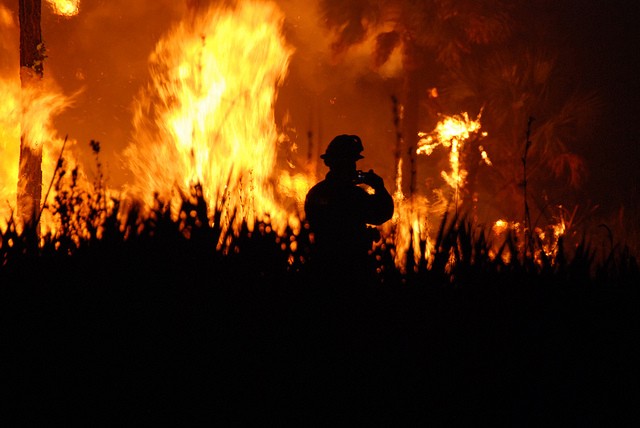
Barack Obama said more about climate change in his inauguration speech — and expressed it more forcefully — than he did at any point in the 2012 election campaign and during much of his first term […] He made a carefully calibrated appeal to Republicans, situating a transition from fossil fuels to clean energy in a religious and conservative framework of God and constitution.
The Earth and its many forms of life were thrilled to hear the American president mark his second inauguration with a long overdue promise to save the planet from human ruination. Since the Frankenstorm made it okay for centrist Democrats (and a handful of moderate Republicans) to acknowledge that global warming may deliver even more than easy punchlines for Mitt Romney, there was Hope that second-term Obama might get serious about our predicament. And he did, even if he still felt compelled to bring up the Republicans’ favorite superheroes, God and the Founding Fathers. (How would George Washington and Jesus fight climate change, anyway? With a huge manly gun.)
The surprise was that Obama went beyond vague calls to “address climate change” and spoke specifically about the need to “preserve our planet.” It has become a sad part of mainstream Democratic politics that talking about actual environmentalism — saving species, protecting wilderness, keeping our air and water clean — has become too radical for a president. That’s the kind of crazy talk best left to Richard Nixon, who oversaw and approved the creation of the Clean Water Act, Clean Air Act, Environmental Protection Agency, National Environmental Policy Act and Endangered Species Act.
One of the most pathetic parts of Obama’s first term was the squeamishness shown by the administration after the Solyndra bankruptcy. The energy company got a bunch of government money and tax credits, like all energy companies always get in America. And then it collapsed. If Solyndra was based in Texas and got its energy by drilling in the ground, it would be completely patriotic for the company to fail (and also for it to deal directly with Arab terrorists as business partners). But the company was based in the San Francisco Bay Area, and the energy it harvested was sustainable, and this combined liberal evil caused the Obama Administration to shy away from climate change action for the entire first term. (Overall, the “green stimulus” was successful and effective.)
Now that Obama is a bold liberal (centrist) president, what will his environmental action plan look like? Here’s what he promised yesterday:
We, the people, still believe that our obligations as Americans are not just to ourselves, but to all posterity. We will respond to the threat of climate change, knowing that the failure to do so would betray our children and future generations. Some may still deny the overwhelming judgment of science, but none can avoid the devastating impact of raging fires, and crippling drought, and more powerful storms. The path towards sustainable energy sources will be long and sometimes difficult. But America cannot resist this transition; we must lead it. We cannot cede to other nations the technology that will power new jobs and new industries — we must claim its promise. That is how we will maintain our economic vitality and our national treasure — our forests and waterways; our croplands and snowcapped peaks. That is how we will preserve our planet, commanded to our care by God. That’s what will lend meaning to the creed our fathers once declared.
God, founding fathers, etc. But also, specific talk about forests, mountains, rivers, “national treasure.” What kind of policy comes from this, and how much can he do without House approval?
Along with the generally worthwhile Green Stimulus, outgoing Interior Secretary Ken Salazar is now being credited with shaping a public lands policy for renewable energy that provides some environmental protection for public lands. Salazar did not come up with this himself, of course. Salazar, a Colorado rancher, is such a terrible excuse for an environmentalist that he threatened legal action against the Bush Administration to keep the endangered black-tailed prairie dog off the endangered species list. He initially followed the second-term Bush Junior policy of letting fly-by-night energy companies claim untouched Southwestern wilderness for their bulldozed miles-wide solar and wind factories. But thanks to intense pressure from environmental organizations, he leaves office with a plan in place to put these intensive-use facilities on public lands closer to the infrastructure of roads and transmission lines, and of comparatively less conservation value than pristine endangered species habitat. (It’s still the same basic “capitalism” of energy companies using government tax breaks to build for-profit power plants from on government land, just like the oil and natural gas drillers have done for ages.)
A secretary of the Interior Department who has an interest in environmentalism would be a good start to Obama’s second term. Raúl Grijalva, the Arizona congressman, is the best of the names being thrown around right now. The choice of Grijalva would also continue the Obama Administration’s amusing habit of picking liberal cabinet members from a state run by comically deranged right-wing villains.
For the Environmental Protection Agency, it would be a “green move” to acknowledge the catastrophe of fracking instead of killing scientific papers that outline the dangers. Both the EPA and the Department of Energy will be getting new leadership; neither Lisa Jackson nor Stephen Chu were particularly green. The Keystone XL pipeline, a terrible project that would encourage the use of the absolute filthiest form of energy we have on Earth, should be stopped (again) and thrown in the compost heap.
Whatever the White House does or doesn’t do between now and January of 2017, the droughts and wildfires and crazy storms and crushing heat and vanishing of species will continue. The actions taken now won’t make an immediate difference, but the continued weather horror will likely keep people behind these policies even if they don’t make a difference in the short term.
Photo by USFWS.

